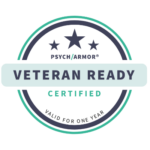
Physical dependency on alcohol is one of the most challenging issues a person going through the recovery process may have to overcome. Alcohol withdrawal symptoms are often difficult to cope with, and they also pose direct physical risks to those going through a detoxification. Under such circumstances, it’s wise to consider a medication-assisted recovery. Let’s take a look at some of the reasons why that is the case and the ways professionals often approach the problem.
What Happens When You Stop Drinking
Within the first hour, after you stop drinking alcohol, your body responds to the situation. The first order of business is circulating blood to your liver for the alcohol to be filtered out of it. The pancreas starts generating insulin, and this is why many people like to consume starchy foods after they’ve been drinking. Over the next 48 hours, regardless of whether you have a chemical dependency issue or not, your body will go through fluctuations in glycemic levels.
At about the 12-hour mark, hydration issues begin to kick in. This is particularly the case in drinkers who don’t mix in water or other non-alcoholic fluids while they drink. These hydration issues are part of the classic hangover.
It’s during this time that the first indications of chemical dependency on alcohol may appear. Common symptoms of alcohol withdrawal include:
- Nausea
- Sweating
- Retching
- Shaking
- Headache
- Anxiety
As we move toward the 24-hour mark, the chances of serious alcohol withdrawal symptoms producing a medically dangerous episode go up. At this stage you may experience:
- Visual and auditory hallucinations
- Seizures
Notably, these symptoms are not the same as delirium tremens, otherwise known as the DTs. While the DTs will only hit about 5 percent of the population that goes through the full-on alcohol withdrawal process, they need to be taken seriously. As one experiences the DTs, they may:
- Suffer mental or emotional confusion
- Feel their heart racing
- Have high blood pressure
- Develop a fever
- Begin sweating
The DTs generally kick in about 48 to 72 hours after someone has had their last drink.
It is possible for symptoms that emerge due to alcohol withdrawal to lead to fatalities. Most deaths occur because a person experiences a cardiovascular failure or a respiratory collapse. Hyperpyrexia and ketoacidosis also occur in about 5 percent of the population during withdrawal from alcohol, and they have the potential to inflict long-term brain damage or death on a person. It’s important to underscore that these issues are rare, and support is available if you anticipate experiencing severe alcohol withdrawal.
One intriguing side-note regarding alcohol ingestion relates to the myth that brain cells are directly killed by drinking alcohol. Research indicates, however, that the amount of alcohol needed to cause brain cell deaths would also be enough to kill a person then and there. Most damage to the brain that is caused by alcohol affects white matter, which is responsible for spatial reasoning. Gray matter cells, the ones that handle more general thinking duties, are not killed by ingesting alcohol.
Instead, it appears that most of the harm to the brain comes from poorly controlled detoxification during alcohol withdrawal. One notable caveat to all of this is that some people who engage in chronic drinking experience thiamine deficiencies. This can lead to a failure of the body to absorb and metabolize a wide range of nutrients. In particular, amino acids that are responsible for neurotransmission and cell division can be reduced to levels that cause brain damage that cannot be reversed.
As you get closer to a week without consuming alcohol, you’re officially clear of the potentially fatal symptoms. People generally report feeling more energetic, and they are often sleeping better by this stage. Folks with dry skin may also see their conditions begin to clear up.
By one month without consuming alcohol, major physical improvements will emerge. Liver fat levels will drop about 15 percent. By the one-year mark, internal organs should be recovering significantly, and weight loss is also common.
The Role of Dopamine
One issue that pops up in the study of virtually every addictive process is the role that dopamine plays in habit formation. Unlike drugs like cocaine or methamphetamines, alcohol does not directly hijack the dopamine production systems in your body. Instead, alcohol consumption triggers a more subtle pathway for modifying behavior adversely.
Put simply, dopamine is a chemical that helps your brain learn that some activity is good. For example, the rush you feel after a long session of talking and laughing with good friends is, in part, the product of dopamine flooding into your system. This allows your brain to register that the experience was good and that you should do it again.
A lot of non-drug addictions are dopamine driven. We see this in cases involving video game or sex addictions, for example. So, how does this relate to alcohol withdrawal symptoms?
Alcohol often becomes the cause of the dopamine rush. Drinking it makes a user feel better, and that reinforces the behavior. The regular use of alcohol in social settings also tends to pile on the dopamine hit.
When it comes to alcohol withdrawal, the drop in dopamine levels can make a person trying to start the recovery process feel like there’s no reward in it for them. Consequently, people often end up feeling depressed or anxious as they try to detox.
Treating Alcohol Withdrawal with Medications
Given the serious risks that come with treating alcohol withdrawal, it’s not surprising that professionals generally want to get the situation under control as quickly as possible when working with someone who appears to be chemically dependent. This can get tricky due to some of the abuse patterns people display and the ways they use both legal and illegal drugs alongside alcohol.
It’s absolutely necessary that you tell anyone who’s trying to treat you as part of a medication-assisted recovery program what drugs you’ve used recently. This is not limited to street-level narcotics. In fact, some of the scariest interactions that can occur are between alcohol withdrawal medications and medications meant to treat anxiety and depression.
Benzodiazepines comprise a class of drugs that are often used in treating both alcohol withdrawal symptoms and anxiety or depression disorders. While sometimes sold on the street as “benzos,” benzodiazepines are mostly in circulation because they’ve been prescribed to patients to treat:
- Panic attacks
- Sleeplessness
- Anxiety issues
- Seizures
- Convulsions
You’ll note that a number of the problems that are treated using benzodiazepines also appear on the previous list of issues that occur after someone stops drinking. This is why they’re popularly employed by medical practitioners in treating alcohol withdrawal issues. Unfortunately, as a doctor prescribes more benzodiazepines to someone who is already consuming them, there can be serious consequences. These risks include:
- Heavy dizziness
- Loss of coordination
- Troubling breathing
- Stupor
- Bluish skin, especially at the extremities
Do not take chances by not fully disclosing the medications you’re using. Doing so increases the chances that you’ll experience serious adverse reactions that could otherwise be avoided.
Specific Drugs and Their Applications
On the bright side, there is a long list of drugs a doctor can prescribe to address symptoms from alcohol withdrawal. These include:
- Benzodiazepines, as previously mentioned, are the preferred drugs for treating immediate withdrawal symptoms. Unfortunately, they can become addictive in their own right, and that means a person who has stopped drinking may then also need to taper off of benzodiazepines before the entire process is considered finished.
- Acamprosate is intended to calm excited neurotransmitters. It is mostly prescribed to patients who’ve been abstinent from alcohol. Doctors tend to consider it a maintenance drug for use following completion of a full detox.
- Naltrexone is a drug that’s employed to curb cravings for a broad spectrum of substances, including opioids. Its efficacy in curbing alcohol cravings is less proven, but some doctors will prescribe it to patients who appear to have a strong need for alcohol.
- Disulfiram, also known as Antabuse, is a drug sometimes used to deter alcohol consumption. It makes someone violently ill when they drink alcohol, and the goal is to create an aversion to drinking. Antabuse is mostly employed when a person has been through multiple relapses and displays signs of being unable to control their alcohol consumption when helped with other drugs. Many doctors see it as a last resort.
If any of these four major options are not usable for some reason, don’t despair. Doctors have access to a total of 75 different medications to potentially treat a case of alcohol withdrawal. For example, topiramate is an alternative for treating seizures when someone cannot take benzodiazepines, although this is considered an off-label use by the FDA. In extreme cases, some patients may also be prescribed antipsychotic medications.
As you go through the process, refrain from trying to second-guess the informed medical advice of your doctor. Explain to them in detail what your situation is and what drugs you have used recently.
Keeping the Recovery Process Going
As you begin recovery, appreciate that no drug by itself can magically make a substance use disorder disappear. While the medication-assisted recovery process can take some of the stings out of the initial ride through alcohol withdrawal, you will be encouraged to engage in counseling sessions as well. During this process, you’ll be asked to identify patterns of use and to learn to manage them. This is absolutely necessary to learn because the world is full of addiction patterns and triggers, and you must be prepared to address them when they appear.
Regardless of the choices of medication you and your doctor make, recovery is a larger process. It takes time, and there are serious risks of relapse occurring. The most important thing to do is to stay focused on the goal of improving your overall health. If you do appear to have relapse issues, there are still drugs that can be utilized as a part of a medication-assisted recovery. Likewise, a regimen meant to encourage the maintenance of abstinence from alcohol can be developed.
In time, you will find that your body will start to bounce back from the experience. Your appearance will look better, and you’ll also start to have more energy and motivation. A medication-assisted recovery can help you break through that first wave of potential difficulties, allowing you to get to the point where you can feel the benefits of being off alcohol.
Fortunately, alcohol withdrawal symptoms subside very quickly compared to those caused by many other drugs. Within a couple of weeks, you’ll be in a position to begin making progress toward your overall wellness goals. Put in the time and work, and you’ll eventually get to where you need to be.






